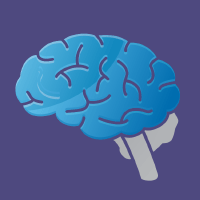Topic Editors


Personality, Emotions, and Emotional Intelligence Assessments: New Applications and Instruments
Topic Information
Dear Colleagues,
Personality and emotions, including emotional intelligence, are two psychological constructs that are widely studied from a variety of theoretical perspectives in many different contexts. Knowledge about their functioning has been used for applied implications and interventions, which future research should extend in order to improve quality of life. Nevertheless, there is a need for reliable and valid instruments for assessing both personality and emotions, with due consideration to age appropriateness. It is therefore of paramount importance to research instruments for assessing personality, emotions, emotional intelligence, and/or the relations between them, and/or to apply them to new contexts and scenarios.
The primary focus of this Special Issue is on psychological perspectives, including cognitive, developmental, educational, clinical, and social psychology. However, contributions from related disciplines such as neuroscience, medicine, and the social sciences are also solicited. Submissions that foster interdisciplinary integration are particularly encouraged.
We welcome research articles, systematic reviews, meta-analyses, and methodological articles characterized by high methodological rigor. Articles may cover (but need not be limited to) the development and/or adaptation and/or validation of instruments for assessing personality and emotions, including emotional intelligence, and/or the relations between personality and emotions. These research topics can be examined according to a life cycle perspective, taking into account different developmental stages such as children, adolescents, and/or adults. The instrument types may include questionnaires, inventories, and checklists; structured or semi-structured interviews; observational methodologies; ad hoc methodologies; and other methodologies. Instruments may be self-reported and/or other-reported. Works may adopt quantitative, qualitative, or mixed methodologies. Approaches based on either classical test theory (CTT), item response theory (IRT), or a combination of both are encouraged. Finally, studies integrating different methodologies are welcome.
We look forward to receiving your contributions.
Dr. Roberto Burro
Dr. Daniela Raccanello
Dr. Joana Pipa
Topic Editors
Keywords
- personality
- emotions
- emotional intelligence
- assessment
- instruments
- life cycle
Participating Journals
| Journal Name | Impact Factor | CiteScore | Launched Year | First Decision (median) | APC | |
|---|---|---|---|---|---|---|

Behavioral Sciences
|
2.5 | 3.1 | 2011 | 29.6 Days | CHF 2200 | Submit |

Education Sciences
|
2.6 | 5.5 | 2011 | 29.2 Days | CHF 1800 | Submit |

Journal of Intelligence
|
3.4 | 4.7 | 2013 | 30.7 Days | CHF 2600 | Submit |

Children
|
2.1 | 3.8 | 2014 | 15.6 Days | CHF 2400 | Submit |

Preprints.org is a multidisciplinary platform offering a preprint service designed to facilitate the early sharing of your research. It supports and empowers your research journey from the very beginning.
MDPI Topics is collaborating with Preprints.org and has established a direct connection between MDPI journals and the platform. Authors are encouraged to take advantage of this opportunity by posting their preprints at Preprints.org prior to publication:
- Share your research immediately: disseminate your ideas prior to publication and establish priority for your work.
- Safeguard your intellectual contribution: Protect your ideas with a time-stamped preprint that serves as proof of your research timeline.
- Boost visibility and impact: Increase the reach and influence of your research by making it accessible to a global audience.
- Gain early feedback: Receive valuable input and insights from peers before submitting to a journal.
- Ensure broad indexing: Web of Science (Preprint Citation Index), Google Scholar, Crossref, SHARE, PrePubMed, Scilit and Europe PMC.


